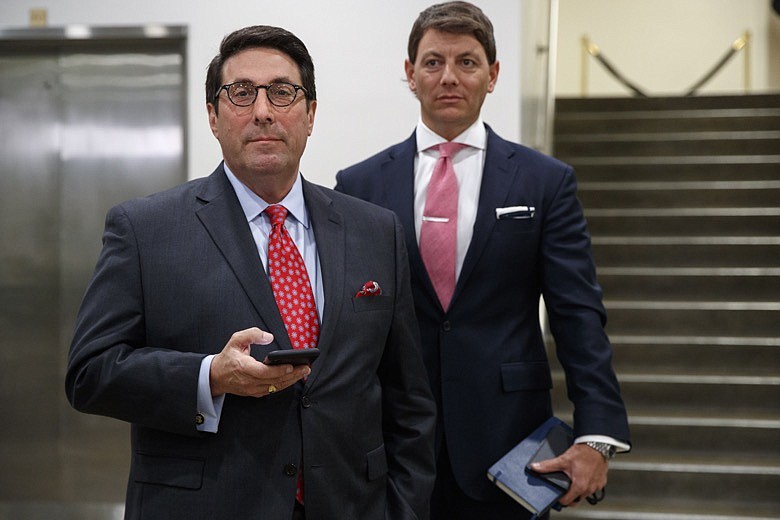WASHINGTON - Trial lawyers have an adage: If the facts are on your side, pound the facts. If the law is on your side, pound the law.
If neither is on your side, pound the table.
In the impeachment trial of President Donald Trump, the House Democrats - the prosecution - are mostly pounding the facts. The heart of their brief is a well-told narrative of Trump's efforts to muscle Ukraine into investigating Democratic rival Joe Biden, and then to cover up the details once the scheme was discovered.
Their central charge is that Trump abused the power of the presidency by asking a foreign government to help him win re-election. There's plenty of evidence on their side.
The president's defense lawyers, in contrast, are mostly pounding the law - their own theory of the law, that is.
Their president's legal brief devotes only 27 pages to contesting the House's version of the facts. Short version: "The president did nothing wrong."
Instead, the core of Trump's argument is a novel interpretation of the law: Whatever the president did, it's not impeachable.
Asking Ukraine (and later China) to investigate Biden? Not impeachable. Blocking $391 million in military aid to Ukraine despite a law requiring that the aid be released? Not impeachable. Ordering everyone in his administration to refuse to cooperate with congressional investigations? Not impeachable.
Why? Because, the president's lawyers argue, none of those acts are clear violations of criminal law. They dismiss the idea of removing a president for abuse of power as "a made-up theory ... newly invented (and) ill-defined."
Many - probably most - legal experts disagree with the argument that a president can only be removed for a violation of the law. "No serious constitutional scholar has ever agreed with it," Harvard professor Lawrence Tribe wrote last week.
Under the Trump defense team's argument, "the president is free to conduct all manner of hypothetical abuses of the office that are not criminal in nature," Paul Rosenzweig, a former assistant to Kenneth W. Starr, the independent counsel who investigated President Bill Clinton, told me.
The concept of using impeachment to protect against a president's abuse of power isn't "newly invented" - far from it. Alexander Hamilton, one of the delegates at the constitutional convention, wrote in 1788 that impeachment would be a response to "the abuse or violation of some public trust."
It's no mystery why the president's lawyers are putting so much weight on the legal argument over what constitutes an impeachable offense. The facts don't look good.
But if the Senate adopts the Trump team's prohibitive standard for impeachment, it will set a precedent that future Congresses and presidents will note.
"If we accept any version of this," Rosenzweig said, "we will go a very long way toward undermining the system of checks and balances in a way that is almost irreparable."
If the Senate acquits Trump, as it is expected to do, it won't explain its decision in any formal way. It will be up to individual senators to explain why they voted as they did.
"At the very least they should protect the system of checks and balances by making clear that they are not voting to acquit on the ground of presidential immunity," Rosenzweig argued.
Otherwise, every future president - including a possible second-term President Trump - will feel emboldened to abuse their powers, ignore traditional norms and refuse to cooperate with congressional investigations.
The senators' duty to protect the Constitution won't end when they vote to acquit or convict. They may yet need to pound a table or two.
The Los Angeles Times
